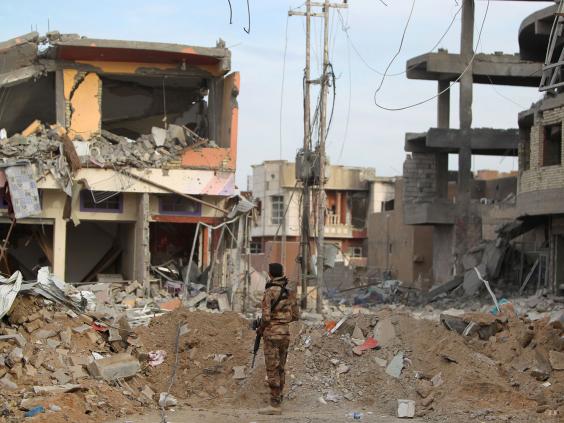‘Highly dangerous’ radioactive material stolen, sparking fears of Isis ‘dirty bomb’
Independent: Iraq is searching for “highly dangerous” radioactive material stolen last year amid fears it could have fallen the hands of Isis jihadis.
The material, stored in a protective case the size of a laptop, went missing from a US-owned storage facility in Basra last November, according to leaked environment ministry documents.
An unnamed senior security official with knowledge of the theft said: “We are afraid the radioactive element will fall into the hands of Daesh (Isis).
“They could simply attach it to explosives to make a dirty bomb”.
Click here for a photo essay 74 photos.
The document, dated 30 November and addressed to the ministry’s Centre for Prevention of Radiation, describes “the theft of a highly dangerous radioactive source of Ir-192 with highly radioactive activity belonging to SGS from a depot…in the Rafidhia area of Basra province”.
An anonymous senior environment ministry official based in the city told Reuters the device contained up to 10 grams (0.35 ounces) of Ir-192 “capsules”, a radioactive isotope of iridium also used to treat cancer.
The material is classed as a Category 2 radioactive by the International Atomic Energy Agency – meaning it can be fatal to anyone in close proximity to it in a matter of days or even hours.
So far there is no indication that the material has fallen into the hands of Isis – who do not control this part of southern Iraq – but they have begun using chemical weapons.
The terror group attacked Kurdish forces with mustard gas during a battle near Erbil – capital of the Kurds’ autonomous region in Iraq last August.
It is believed to be the first time chemical weapons have been used in the country since the fall of Saddam Hussein in 2003.
A “dirty bomb” combines nuclear material with conventional explosives to contaminate an area with radiation, in contrast to a nuclear weapon, which uses nuclear fission to trigger a vastly more powerful blast.
A security official said the initial investigation suggested the perpetrators had specific knowledge of how to handle the material and how to gain access to the facility.
There were “No broken locks, no smashed doors and no evidence of forced entry”.
An operations manager for Iraqi security firm Taiz, which was contracted to protect the facility, declined to comment, citing instructions from Iraqi security authorities.
A spokesman for Basra operations command, responsible for security in Basra province, said army, police and intelligence forces were working “day and night” to locate the material.
Two Basra provincial government officials said they were told to work with local hospitals to identify possible victims on 25 November.
One said: “We instructed hospitals in Basra to be alert to any burn cases caused by radioactivity and inform security forces immediately”.

